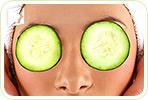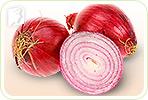While allergies can develop in women at various life stages, they are especially notorious among those passing through the menopausal transition. Fortunately, women have an arsenal of effective approaches to treating menopausal allergies and restoring the quality of their life.
Keep on reading to discover the best treatments for allergies to resolve the underlying hormonal imbalance and get rid of allergy symptoms once and for all!
Three Approaches to Treating Allergies
There are three approaches to treating allergies during menopause: (1) Lifestyle changes, (2) Alternative medicine, and (3) Medications, starting from the safest, low-risk options and moving to more invasive treatments only if necessary.
Lifestyle Changes for Allergy Treatment

The first approach to treating allergies entails no risk, but it demands the most self-control. Nonetheless, implementing minor lifestyle adjustments can result in significant improvements and bring relief from allergies.
Nutritious Diet
Because the body needs nutrients from food to maintain its functions, including hormonal balance and immune system, optimizing one's diet is key. Middle-aged women should opt for meals rich in three macronutrients - healthy fats, lean protein, and complex carbs - and essentials micronutrients. Good menopause diet food options are as follows:
- Phytoestrogen-rich foods give the body estrogenic compounds that fill in the hormonal gap, thus helping relieve allergy symptoms and other menopausal discomforts.
Soy, flax, oats, cabbage
- Vitamin C-rich foods. The world's most famous antioxidant, vitamin C has been shown to strengthen the immune system, control histamine release, and act as a natural antihistamine to relieve allergy symptoms.1
Lemon, camu camu, bell peppers, blueberries, peaches
- Probiotic foods help build healthy intestinal flora, which is key for fighting pathogens, boosting the immune system,and relieving symptoms of allergic rhinitis, though more research is needed to reveal the mechanism. 2
Yogurt, kombucha, sauerkraut, kimchi
- Anti-inflammatory foods help reduce inflammation that occurs in the body in response to an allergen, or a foreign substance the body treats as harmful, and give the immune system a chance to recuperate.3
Garlic, onions, ginger, bok choy, pineapple
Regular Exercise
Although the benefits of regular exercise for treating allergies, promoting hormonal imbalance, and alleviating other menopause symptoms cannot be underestimated, women with certain allergies - particularly to some foods and medications - might develop rare and potentially life-threatening, exercise-induced anaphylaxis. As such, prior clearance from a doctor is a must.4
Amount: Once cleared from the doctor, the general recommendation for middle-aged women is to engage in 150 minutes of moderate physical activity per week, or 75 minutes of intense exercise per week.5
Type: Although individual recommendations might vary, combining aerobic workouts with muscle strengthening routines, like working with resistance bands, is highly beneficial for balancing hormones and treating allergies.
Useful tips: The key to an exercise habit that lasts is listening to one's body and its needs; finding the type of workouts one enjoys the most; and starting slowly and gradually building up to what is recommended.
Precautions: Because falling estrogen levels can affect bone health and put women at risk of developing osteoporosis and fractures, injury-prone and strenuous workouts should be avoided.
Wholesome Habits
Besides eating correctly and staying active, women can complement their allergy treatment plans with wholesome habits aimed at boosting the immune system and strengthening the body. They include the following:
Avoiding triggers, including allergy-proofing one's house, is one of the quickest and most effective approaches to relieving allergy symptoms, though it may be time-consuming to determine an allergen at fault.
Lowering stress is an essential component of an effective allergy treatment plan as stress not only inhibits proper hormone production, but also weakens the immune system and disrupts its function.
Quitting addictions to smoking and excessive alcohol drinking is of the essence as both have been found to increase the risk of various allergies or worsen their symptoms.6,7
Trying home remedies, including steam inhalations with essential oils, saline sprays, or acupuncture, to relieve allergy symptoms naturally can also prove of great benefit.
Alternative Medicine for Allergy Treatment

Alternative medicine, which comprises the second level of allergy treatment, offers numerous options, most popular of which are herbal supplements. With virtually no side effects, they are one of the best solutions for allergies as they tackle their root cause, hormonal imbalance.
There are two types of herbal supplements that can be added to one's allergy treatment plan: phytoestrogenic and hormone-regulating supplements.
Phytoestrogenic Supplements
Phytoestrogenic supplements, like gingko, contain phytoestrogens, plant-based compounds with estrogenic activities. When consumed, they mimic estrogen in the body, thus contributing to balancing its levels as well as other reproductive hormones. Their extended use is not recommended since they can make the body less capable of producing its own hormones, thus resulting in a hormonal decline in the long run.
Hormone-Regulating Herbal Supplements
Hormone-regulating supplements, like Macafem, are made from plants that do not supply the body with outside hormones. Instead, they contain alkaloid compounds that nourish the endocrine glands, stimulating their own hormone production and, thus, relieving symptoms of allergies. As such, these supplements can be used long-term and are considered one of the safest treatments for allergies and other menopausal symptoms.
From Nature and Health Magazine, Dr. Chacon says:
"Macafem's nutrients help restore natural hormones in women. Unlike hormone drugs, which are basically resumed in taking synthetic hormones, Macafem acts totally different in your body. It nourishes and stimulates your own natural hormone production by inducing the optimal functioning of the pituitary and endocrine glands." Click on the following link to learn more about Macafem.
Most women can benefit from a combination of lifestyle adjustments and herbal supplements in treating allergies during menopause. However, for those with severe symptoms, more conventional treatments - such as medications or immunotherapy - might be safer and more appropriate.
Medications & Immunotherapy for Allergy Treatment

The third-level interventions for treating allergies typically involve the highest cost and the highest risks. However, because some allergies can be life-threatening, it is necessary to evaluate the use of these conventional treatments on a one-on-one basis.
The two types of conventional allergy treatments at women's disposal include medications and immunotherapy.
Medications
Most allergy medications are designed to relieve allergy symptoms, not treat their underlying cause. They include the following:
Antihistamines block histamines and reduce allergy symptoms like sneezing, runny nose, or hives. Studies have shown that long-term use of first-generation antihistamines with anticholinergic effects may raise the risk of developing dementia.8
Decongestants work by reducing membrane swelling in the nose, thus lessening congestion and stuffiness. When used for a few days, they might result in a “rebound effect” and worsen allergy symptoms.
Corticosteroids work by reducing swelling, thus relieving symptoms of allergies and improving respiration. In a cream form, they aim to relieve itchiness or rashes cause by an allergic reaction.
Epinephrine injection is used in life-threatening allergic reactions, called anaphylaxis, caused by foods, insect bites, medications, or latex.
- Hormone-replacement therapy (HRT) was once the most popular treatment for menopause symptoms, including allergies. It supplies the body with synthetic hormones to promote balance and alleviate symptoms. Although effective, HRT use has been linked to serious side effects and certain health risks, as shown in the studies below.
Immunotherapy
Another allergy treatment option is immunotherapy, which is designed to build a woman's immunity to a specific allergen by giving her body gradually increasing doses of said allergen. However, it is typically costly and time-consuming. It comes in two types:
Allergy shots consist of injecting small doses of an allergen into the muscle, particularly those of pollen, dust, cat or dog dander, or insects.
Sublingual immunotherapy (SLIT) consists of placing small doses of an allergen under the tongue; it can be used for dust mite, ragweed, and grass allergies.
The aforementioned three tiers of allergy treatment approaches can be used separately or combined as necessary to manage current symptoms. Many women passing through the menopausal transition find that focusing on making wholesome lifestyle changes alongside herbal supplements helps them battle the symptoms without having to rely on conventional treatments.
A Safe Way of Treating Allergies
Implementing Lifestyle Changes:
- Eating foods rich in phytoestrogens, vitamin C, and probiotics
- Consulting with the doctor about appropriate workouts
- Reducing stress via yoga, meditation, and deep breathing exercises
- Avoiding the triggers and quitting addictions to smoking and alcohol
And Taking Herbal Supplements:
- Phytoestrogenic herbal supplements, like gingko
- Or natural hormone-regulating supplements, like Macafem
Sources
- Allergy, Asthma & Clinical Immunology. (2014). The effect of vitamin C on bronchoconstriction and respiratory symptoms caused by exercise: a review and statistical analysis. Retrieved March 16, 2020 from https://aacijournal.biomedcentral.com/articles/10.1186/1710-1492-10-58
- American College of Allergy, Asthma & Immunology. (n.d.). Allergy Immunotherapy. Retrieved March 16, 2020 from https://acaai.org/allergies/allergy-treatment/allergy-immunotherapy
- Asthma and Allergy Foundation of America. (2018). Retrieved March 16, 2020 from https://www.aafa.org/allergy-treatments/
- Better Health Channel. (2015). Allergies to medications. Retrieved March 16, 2020 from https://www.betterhealth.vic.gov.au/health/ConditionsAndTreatments/allergies-to-medications
- Current Allergy and Asthma Reports. (2011). Exercise-Induced Anaphylaxis: An Update on Diagnosis and Treatment. Retrieved March 16, 2020 from https://www.ncbi.nlm.nih.gov/pmc/articles/PMC3020292/
- FDA. (2019). Seasonal Allergies: Which Medication is Right for You? Retrieved March 16, 2020 from https://www.fda.gov/consumers/consumer-updates/seasonal-allergies-which-medication-right-you
- ISRN Nutrition. (2013). Health Benefits of Probiotics: A Review. Retrieved March 16, 2020 fromhttps://www.ncbi.nlm.nih.gov/pmc/articles/PMC4045285/
- InformedHealth.org. (2017). Allergies: Overview. Retrieved March 16, 2020 from https://www.ncbi.nlm.nih.gov/books/NBK447112/
- Medline Plus. (n.d.). Allergy. Retrieved March 16, 2020 from https://medlineplus.gov/allergy.html
- Medline Plus. (2018). Antihistamines for allergies. Retrieved March 16, 2020 from https://medlineplus.gov/ency/patientinstructions/000549.htm
Footnotes:
- Journal of International Medical Research. (2018). Intravenous vitamin C in the treatment of allergies: an interim subgroup analysis of a long-term observational study. Retrieved March 16, 2020 from https://www.ncbi.nlm.nih.gov/pmc/articles/PMC6136002/
- North American Journal of Medical Sciences. (2013). Treatment of Allergic Rhinitis with Probiotics: An Alternative Approach. Retrieved March 16, 2020 from https://www.ncbi.nlm.nih.gov/pmc/articles/PMC3784923/
- Cleveland Clinic. (2016). Allergy Overview. Retrieved March 16, 2020 from https://my.clevelandclinic.org/health/diseases/8610-allergy-overview
- Nutrition Research and Practice. (2013). Combined effects of food and exercise on anaphylaxis. Retrieved March 16, 2020 from https://www.ncbi.nlm.nih.gov/pmc/articles/PMC3796658/
- American Heart Association. (2018). Recommendations for Physical Activity in Adults and Kids. Retrieved March 16, 2020 from https://www.heart.org/en/healthy-living/fitness/fitness-basics/aha-recs-for-physical-activity-in-adults
- PLOS. (2014). Active or Passive Exposure to Tobacco Smoking and Allergic Rhinitis, Allergic Dermatitis, and Food Allergy in Adults and Children: A Systematic Review and Meta-Analysis. Retrieved March 16, 2020 from https://www.ncbi.nlm.nih.gov/pmc/articles/PMC3949681/
- Clinical and Experimental Allergy. (2008). Alcohol consumption and the risk of self-reported perennial and seasonal allergic rhinitis in young adult women in a population-based cohort study. Retrieved March 16, 2020 from https://www.ncbi.nlm.nih.gov/pubmed/18294256
- BMJ. (2018). Anticholinergic drugs and risk of dementia: case-control study. Retrieved March 16, 2020 from https://www.ncbi.nlm.nih.gov/pmc/articles/PMC5915701/
- JAMA. (2002). Risks and benefits of estrogen plus progestin in healthy postmenopausal women: principal results from the Women's Health Initiative randomized controlled trial. Retrieved January 30, 2020 from https://www.ncbi.nlm.nih.gov/pubmed/12117397
- The Lancet. (2019). Type and timing of menopausal hormone therapy and breast cancer risk: individual participant meta-analysis of the worldwide epidemiological evidence. Retrieved January 30, 2020 from https://www.thelancet.com/journals/lancet/article/PIIS0140-6736(19)31709-X/fulltext



